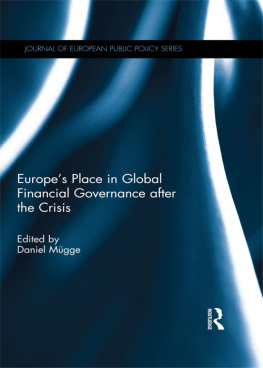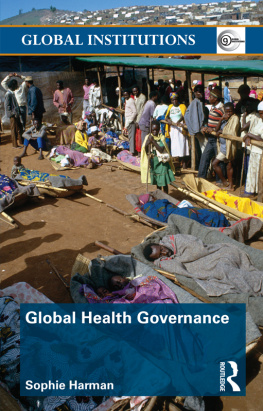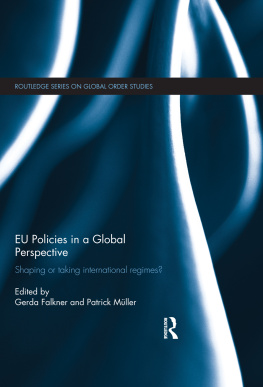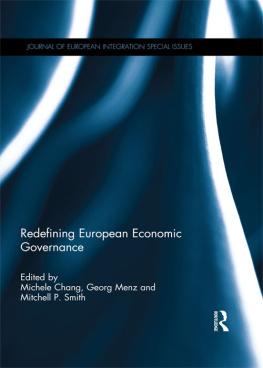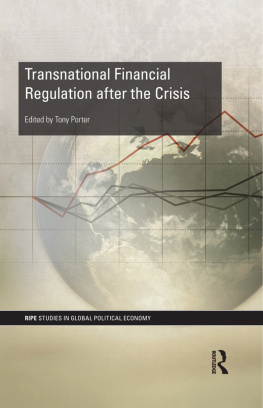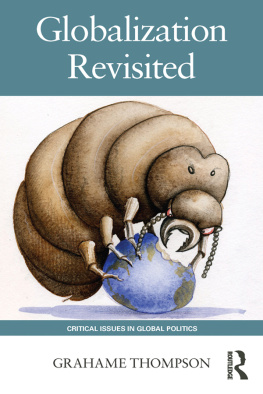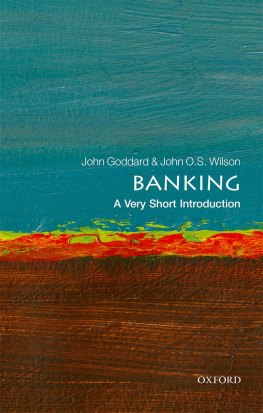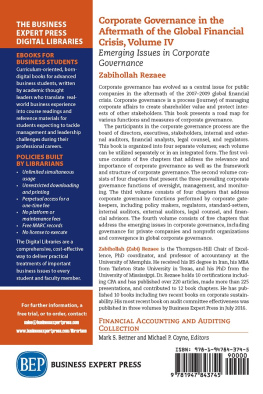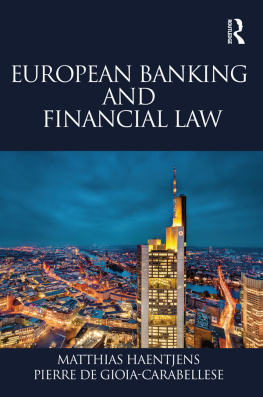Europe and the Governance of
Global Finance
Daniel Mgge
Title Pages
Europe and the Governance of Global Finance

(p.iv) 
- Great Clarendon Street, Oxford, OX2 6DP,
- United Kingdom
- Oxford University Press is a department of the University of Oxford.
- It furthers the Universitys objective of excellence in research, scholarship,
- and education by publishing worldwide. Oxford is a registered trade mark of
- Oxford University Press in the UK and in certain other countries
- Oxford University Press 2014
- The moral rights of the authors have been asserted
- First edition published in 2014
- All rights reserved. No part of this publication may be reproduced, stored in
- a retrieval system, or transmitted, in any form or by any means, without the
- prior permission in writing of Oxford University Press, or as expressly permitted
- by law, by licence or under terms agreed with the appropriate reprographics
- rights organization. Enquiries concerning reproduction outside the scope of the
- above should be sent to the Rights Department, Oxford University Press, at the
- address above
- You must not circulate this work in any other form
- and you must impose this same condition on any acquirer
- Published in the United States of America by Oxford University Press
- 198 Madison Avenue, New York, NY 10016, United States of America
- British Library Cataloguing in Publication Data
- Library of Congress Control Number: 2013956538
- Printed and bound by
- CPI Group (UK) Ltd, Croydon, CR0 4YY
- Links to third party websites are provided by Oxford in good faith and
- for information only. Oxford disclaims any responsibility for the materials
- contained in any third party website referenced in this work
Ian Dewing and Peter Russell
David Howarth and Lucia Quaglia1
Stefanie Hiss and Sebastian Nagel
Dedication
(p.v) To Geoffrey Underhill, who first awakened my interest in the politics of finance (p.vi)
(p.vii) Preface
As a force in global financial governance, Europe is a strange animal. Its 28 member states are often fundamentally at odds with each other about the direction of future policy. Elementary issues are highly contested: the size of banks capital buffers, the regulation of hedge funds, bonuses for finance CEOs, and many more. The eurocrisis has exposed serious weaknesses in European financial governance. From the perspective of global financial governance, surely we cannot expect very much from such a divided and weakened continent. At the same time, the rise of Europe in global financial governance fundamentally reshaped the politics of global financial rule-setting. The so-called BRICS remain largely invisible in such rule-setting, for example, in the Basel Committee or the G20. European and American negotiators, in contrast, often see eye to eye these days.
This book provides the first comprehensive mapping and analysis of how the European Union fits into global financial governance. It has its roots in the EU-sponsored FP7 project Global Reordering: Evolution through European Networks (GR:EEN). In this project I have been honoured to coordinate the work on financial governance. When asked about the aim of GR:EEN, I usually summarized it as understanding Europes future role on the global stage. My own mission in GR:EEN therefore has been to explore the future role of the EU in global financial governance. Of course, even speculating about that trajectory is of little use without a solid understanding of how financial regulation both within and outside of Europe have co-evolved in the past. Such a historical perspective highlights the forces and dynamics that shape the global politics of finance and allow us to suggest forward-looking scenarios.
Providing such historically grounded analysis is a key aim of this book. At the same time, its aims go further. However much political weight we accord the EU exactly in global financial governance, it is clear that its rise in global regulatory politics has been the most tangible sign of an end to a global regulatory order that was unambiguously dominated by the USA. The global context obviously remains important for understanding regulatory politics in the EU. At the same time, accounting for global financial governance becomes more and more difficult without explicit attention to the EU as a force within it. This book therefore not only contributes to the specific mission of mapping the terrain of potential future trajectories in global financial governance, it also is meant as a resource for scholars with a historical interest in European or global financial regulation. And, maybe even more importantly, it offers students, researchers, and practitioners with an interest in the contemporary legal and governance landscape an overview of the links between global agreements such (p.viii) as the Basel capital accord, European rules, and regulatory regimes elsewhere in the world, particularly in the United States.
This book draws on the expertise of more than a dozen scholars. At the same time, it strives to offer the coherence and consistency that normally characterize monographs. Together, the chapters cover the whole terrain of financial regulation, not only a sub-set of cases. And all contributors generously committed to contribute original chapters, written especially for this volume, which address the questions set out in the introduction. I hope that reading this book, either as a whole or the specific chapters of interest, is as insightful to you as all the discussions leading up to it have been for the team of contributors.
Daniel Mgge
Amsterdam
March 2014
(p.ix) Acknowledgements
The editor of any book is inevitably at the mercy of the volumes contributors. The quality of the final project entirely depends on the quality of its contributions and the willingness of authors to abide by the guidelines set out for the volume. In both respects, the experience leading to this book could hardly have been more pleasing and rewarding: I remain impressed by the breadth and depth of insight that the authors brought to the table, and by their dedication to the project that is this book. I am deeply grateful for their contribution to this endeavour.


